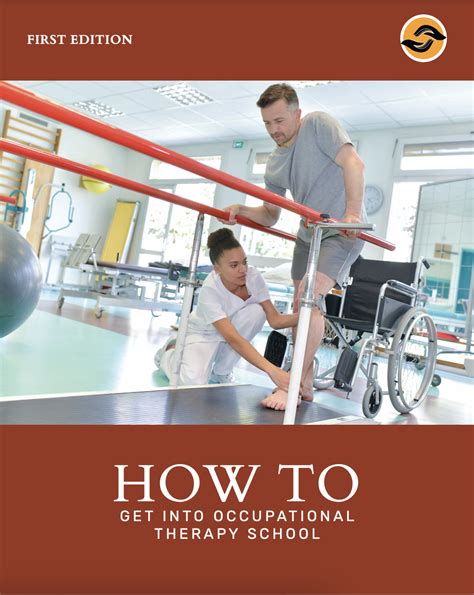Occupational therapy has long been recognized as a vital and transformative healthcare profession, yet many people may not fully understand its scope and impact. In this blog post, we will explore the multifaceted world of occupational therapy, shining a light on its various facets and how it touches the lives of individuals in need. From addressing physical challenges to improving cognitive skills and enhancing emotional well-being, occupational therapy plays a crucial role in rehabilitation and overall wellness. We will examine the techniques used for children, the promotion of independence and functionality, and the adaptation of environments for optimal occupational performance. Additionally, we will also delve into the future of occupational therapy, discussing the innovative advancements that are shaping its evolution. By the end of this post, you will have a deeper understanding and appreciation for the invaluable work that occupational therapists do to help individuals lead fulfilling lives.
Table of Contents
What is Occupational Therapy?
Occupational therapy is a client-centered health profession that helps people of all ages to overcome physical, cognitive, or emotional challenges and achieve independence in their daily activities. Occupational therapists work with individuals to improve their ability to perform tasks at home, work, school, and in the community. They address the physical, psychological, and environmental factors that affect functional performance. Occupational therapy aims to promote health and well-being through engagement in meaningful occupations.
Occupational therapists assess a person’s strengths, deficits, and goals, and then develop personalized treatment plans to improve their functional abilities. The therapy may involve activities to enhance fine motor skills, cognitive strategies, sensory processing, or emotional regulation. Therapists also provide education and training to clients and their families on how to adapt the environment and use assistive devices to support functioning. In addition, they may collaborate with other healthcare professionals to ensure holistic care.
Occupational therapy is not limited to physical rehabilitation; it also encompasses mental health, pediatric, and geriatric care. This holistic approach focuses on the whole person and supports their unique needs and goals. By providing individualized interventions, occupational therapists empower people to participate in meaningful activities and lead fulfilling lives.
Overall, occupational therapy plays a crucial role in helping individuals achieve independence and functionality, and it contributes to the overall well-being and quality of life for people with diverse challenges and conditions.
How Occupational Therapy Helps Individuals
Occupational therapy plays a crucial role in helping individuals of all ages to overcome physical, cognitive, and emotional challenges, and to improve their overall well-being.
By utilizing therapeutic activities and exercises, occupational therapists work with their clients to build strength, coordination, and endurance, thereby improving their physical abilities and functional independence.
For individuals with cognitive impairments, occupational therapy focuses on cognitive retraining and the development of compensatory strategies to enhance memory, attention, problem-solving, and decision-making skills, ultimately promoting a higher level of cognitive function and autonomy.
In addition, occupational therapy also addresses emotional well-being by providing emotional support, teaching coping mechanisms, and helping individuals to engage in meaningful activities that bring them joy and a sense of fulfillment.
The Role of Occupational Therapy in Rehabilitation
Occupational therapy plays a crucial role in the rehabilitation process for individuals recovering from illness, injury, or surgery. It focuses on helping patients develop, recover, or maintain the skills needed for daily living and working. By addressing physical, cognitive, and emotional challenges, occupational therapists assist patients in regaining independence and functionality in their everyday lives.
In rehabilitation, occupational therapy aims to promote the highest level of independence and participation in meaningful activities for individuals of all ages. Occupational therapists work with patients to identify their goals and develop personalized treatment plans to help them achieve those objectives. Whether someone has experienced a stroke, traumatic brain injury, or physical disability, occupational therapy is integral in helping patients adapt to their conditions and enhance their overall quality of life.
Through a combination of therapeutic exercises, activities, and assistive devices, occupational therapists empower individuals to overcome obstacles and improve their physical and cognitive abilities. They also provide guidance on how to modify home and work environments to support optimal occupational performance. This may involve recommending ergonomic tools, adaptive equipment, or home modifications to create a safe and accessible living space for the patient.
Overall, occupational therapy plays a vital role in the rehabilitation process by addressing the unique needs of each individual and helping them navigate the challenges of recovery. By focusing on holistic care and personalized interventions, occupational therapists contribute to the success of rehabilitation programs and assist patients in achieving their maximum potential for independence and functionality.
Addressing Physical Challenges through Occupational Therapy
Occupational therapy is a critical component in addressing physical challenges for individuals who may have difficulty performing their daily activities due to injury, illness, or disability.
Occupational therapists work with clients to develop personalized treatment plans that focus on improving their physical abilities and enhancing their quality of life. Through physical rehabilitation techniques and exercises, occupational therapy aims to restore mobility, strength, and coordination for individuals with physical challenges.
Therapists also provide adaptive equipment and assistive devices to help individuals perform tasks independently and safely. Whether it’s through teaching proper body mechanics or recommending modifications to the living environment, occupational therapists play a crucial role in helping individuals overcome physical limitations and regain their independence.
By addressing physical challenges through occupational therapy, individuals can experience improved functional abilities, reduced pain, and an overall better quality of life. It’s a holistic approach that considers the physical, emotional, and environmental factors that can impact an individual’s ability to engage in meaningful activities.
Improving Cognitive Skills with Occupational Therapy
Occupational therapy is a crucial intervention for individuals seeking to enhance their cognitive abilities. Through a personalized approach, occupational therapists carefully assess the individual’s cognitive strengths and challenges, developing a tailored plan to address their specific needs. Utilizing a variety of techniques and activities, occupational therapy aims to improve cognitive skills such as memory, attention, problem-solving, and decision-making.
One of the primary goals of occupational therapy in enhancing cognitive skills is to enhance overall brain function and promote independent living. Therapists work with individuals to engage in activities that challenge their cognitive abilities, contributing to improved brain plasticity and overall cognitive functioning.
From engaging in puzzles and memory games to practicing daily living tasks that require cognitive processing, occupational therapy plays a vital role in empowering individuals to maximize their cognitive potential. Whether it’s working with individuals recovering from a brain injury or those struggling with cognitive decline, occupational therapy offers a holistic approach to improving cognitive skills and promoting overall well-being.
By incorporating occupational therapy techniques and strategies into daily routines, individuals can experience positive changes in their cognitive abilities, leading to greater independence and meaningful participation in daily activities.
Enhancing Emotional Well-being through Occupational Therapy
Occupational therapy is a holistic approach to healthcare that focuses on helping individuals overcome physical, cognitive, and emotional challenges in order to live life to the fullest. When it comes to emotional well-being, occupational therapy plays a crucial role in addressing and improving mental health issues.
One of the key ways occupational therapy enhances emotional well-being is through the use of therapeutic activities. These activities are designed to engage the individual in meaningful and enjoyable tasks that promote a sense of accomplishment and purpose. Whether it’s art therapy, gardening, or music therapy, these activities can boost mood, reduce stress, and increase overall satisfaction with life.
Another important aspect of occupational therapy in improving emotional well-being is emotional regulation. Occupational therapists work with individuals to develop coping strategies, stress management techniques, and emotional regulation skills to help them better navigate the ups and downs of daily life.
Furthermore, occupational therapy also focuses on social participation and helping individuals build and maintain meaningful relationships. By addressing social skills, communication abilities, and interpersonal interactions, occupational therapists help individuals feel connected, supported, and understood.
Occupational Therapy Techniques for Children
Occupational therapy for children involves a variety of techniques that are specifically tailored to address the unique needs of young individuals. One important technique used in pediatric occupational therapy is sensory integration therapy, which focuses on helping children with sensory processing disorders to better understand and respond to sensory stimulation. This can involve activities such as swinging, jumping, and playing with various textures to help children regulate their sensory input.
Another valuable technique is fine motor skill development, which aims to improve a child’s ability to use their hands and fingers for activities such as writing, drawing, and manipulating small objects. Occupational therapists use activities such as playing with clay, stringing beads, and using scissors to help children develop the strength and coordination needed for these skills.
Furthermore, occupational therapy for children often includes activities aimed at improving social skills and peer interaction. This can involve role-playing, group games, and collaborative projects to help children learn how to communicate, cooperate, and build relationships with others.
Finally, a key technique in pediatric occupational therapy is the use of adaptive equipment and environmental modifications. Occupational therapists work with children and their families to identify tools and adapt their surroundings to make daily tasks more manageable, whether it’s using specialized utensils for eating, modifying furniture for better accessibility, or creating visual schedules for improved organization and routine.
Promoting Independence and Functionality with Occupational Therapy
Occupational therapy plays a crucial role in promoting independence and functionality for individuals with physical, mental, or emotional challenges. With a focus on enhancing daily living skills and activities, occupational therapists work with clients to develop personalized strategies and techniques to improve their overall quality of life.
Through occupational therapy, individuals can learn how to adapt their environments and develop the necessary skills to perform tasks independently. This may involve teaching techniques for overcoming physical limitations, addressing cognitive impairments, and managing emotional barriers.
By promoting independence, occupational therapy empowers individuals to participate in meaningful activities, engage in social interactions, and maintain a sense of autonomy. Whether it’s through assistive devices, adaptive strategies, or environmental modifications, occupational therapists are dedicated to helping their clients achieve greater functionality in their daily lives.
Furthermore, occupational therapy aims to optimize individuals’ independence by focusing on their strengths and abilities. By identifying and harnessing their unique skills, occupational therapists work towards enabling clients to lead fulfilling, self-sufficient lives.
Adapting Environments for Optimal Occupational Performance
Occupational therapy plays a crucial role in helping individuals overcome physical and cognitive challenges in order to improve their ability to perform daily tasks and activities. One of the key aspects of occupational therapy is adapting environments to support optimal occupational performance.
By adapting environments to meet the specific needs of each individual, occupational therapists can help enhance their clients’ independence and functionality. This may involve modifying the layout of a workspace, incorporating assistive devices, or creating strategies to improve accessibility.
In addition, environmental adaptations can include making adjustments to the home or school setting to accommodate for physical limitations, sensory sensitivities, or cognitive impairments. This can create a more inclusive and supportive environment that enables individuals to engage in meaningful and purposeful activities.
Furthermore, occupational therapists may collaborate with other professionals, such as architects, contractors, or educators, to ensure that environmental adaptations are tailored to the unique needs of each client. This interdisciplinary approach allows for comprehensive and personalized solutions that facilitate optimal occupational performance.
The Future of Occupational Therapy: Innovation and Advancements
Occupational therapy has come a long way since its inception, and the future looks promising with the constant innovation and advancements in the field. As technology continues to evolve, occupational therapists are finding new ways to incorporate these advancements into their practice, making their interventions more effective and efficient.
One of the key areas of innovation in occupational therapy is the use of virtual reality and augmented reality to simulate real-life environments and activities for individuals undergoing rehabilitation. By creating these simulated experiences, therapists can assess and address their clients’ needs in a more controlled and safe environment, ultimately leading to better outcomes.
Another area of advancement in occupational therapy is the integration of telehealth and telemedicine into practice. With the use of video conferencing and other technological tools, occupational therapists can now reach and provide services to individuals in remote or underserved areas, expanding access to care and improving overall health outcomes.
Furthermore, the future of occupational therapy also holds promise in the development of advanced assistive devices and technologies to help individuals with disabilities or injuries perform daily tasks and activities more independently. From robotic exoskeletons to smart home devices, these innovations are changing the landscape of occupational therapy and improving the quality of life for countless individuals.





